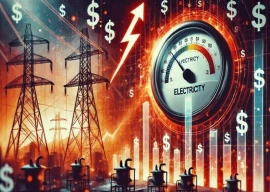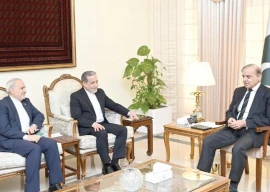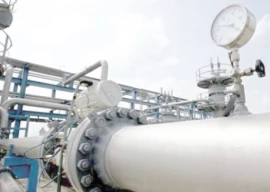
How would the recent mini-budget affect Pakistan’s economy? The government claims that the withdrawal of certain tax exemptions contained in it would affect only the consumers of luxury goods while it would improve the documentation of economy.
On the other hand, critics see the budget as leading to further inflation and adding to the misery of the common people. According to the finance minister, the IMF had demanded that tax exemptions amounting to Rs700 billion be withdrawn. Still, the budget envisages an end to exemptions amounting to less than half, ie Rs343 billion.
Of this, Rs272 billion of sales taxes exemption would be refunded or adjusted, and thus, the burden will fall upon consumers with additional taxes of Rs70 billion, most of which would be borne by the users of luxury goods. Unsurprisingly, the IMF would be seeking withdrawal of tax exemptions, which reportedly amounted to an estimated Rs1,314 billion (out of the total collection of Rs3,997 billion in 2019-20).
However, what is not so clear are the criteria used to select certain sectors and not others for the exercise.
The overall impact of the withdrawal of exemptions primarily relates to indirect taxes. During the last two years, the share of indirect taxes has increased by 7% after being constant at 60% over the previous decade.
Indirect taxes adversely affect the poor as a higher proportion of their income gets taxed. Furthermore, the finance minister’s claim that the measures would only affect the more affluent section of society is not borne out by the following facts.
First, higher taxes on social sectors such as supplies of goods to hospitals, taxing pharmaceutical raw material, iodised salt or babies’ milk would significantly impact those who already find it difficult to afford such products.
Secondly, imposing 17% sales tax on products such as seeds for sowing and agricultural implements would affect the rural farmers.
With the increased cost of quality seeds and the ongoing crisis of fertiliser availability, we are likely to face significant shortages of crops. Thus, we would pay considerable amounts in foreign exchange to meet the shortfall through imports.
The new tax measures would also negatively affect the successful implementation of policies on digitisation, renewable energy and exports.
For example, the reversal of taxation reforms for the telecom sector by increasing withholding tax on internet and mobile cards from 10% to 15% would impede the much-hyped drive towards the promotion of “Digital Pakistan”.
The government had recently committed to reducing the tax to 8% from 10%, but the opposite is underway. This step would slow the fast-growing e-commerce and start-up ventures.
Similarly, the imposition of sales tax on solar panels, inverters, energy saver lamps, wind turbines and electric vehicles would hinder the target of achieving 30% share of renewables in the energy mix by 2030, as is laid out in the National Renewable Energy Policy.
The government’s strategy to promote exports through populating the Export Processing Zones would be another casualty.
None of our 22 notified zones is fully functional yet. Withdrawal of sales tax exemption on machinery and equipment would increase the investment cost in these zones.
The same will happen in tribal areas where sales tax exemption has been withdrawn for plant and machinery for setting up new industries.
Instead of taxing the above sectors and putting in jeopardy its several forward-looking schemes, the government could have broadened the tax net on those persons who should be paying their due share.
According to the finance minister, the government has information about 15 million Pakistanis, who have lavish lifestyles but they did not pay taxes.
Why is the government not targeting them but the poor who can least afford these taxes?
If any existing tax exemptions were to be withdrawn, these should be from those who can easily bear such burden. These include real estate investors, textile and automotive industries, allowances for persons in the upper echelons and other such people and organisations.
Another option could be to reduce subsidies, which saw a jump from Rs209 billion in 2020-21 to Rs682 billion, up 225%, in this year’s budget.
Since the government claims that all these measures are being taken at the insistence of the IMF, the agency should see these measures in the context of its intent to “reduce economic vulnerabilities and generate sustainable and balanced growth” that it announced while agreeing to grant this loan.
The measures highlighted above and many other similar ones reported through the mini-budget would only increase economic vulnerability and further slow down growth, which is already much lower than other South Asian countries.
Instead of seeking additional indirect taxes, the IMF could have conditioned the loan to the government undertaking fundamental reforms.
These reforms could have shifted the tax burden from indirect to direct taxes, let go of loss-making state enterprises and further opened up the IT sector by releasing the unused spectrum.
The writer has served as Pakistan’s ambassador to WTO and FAO’s representative to the United Nations at Geneva
Published in The Express Tribune, January 24th, 2022.
Like Business on Facebook, follow @TribuneBiz on Twitter to stay informed and join in the conversation.

1721029080-0/BeFunky-collage-(7)1721029080-0-405x300.webp)
1729080111-0/BeFunky-collage-(63)1729080111-0-165x106.webp)
1730878040-0/kamala-(10)1730878040-0-165x106.webp)
1730803801-0/BeFunky-collage-(22)1730803801-0-165x106.webp)













COMMENTS (1)
Comments are moderated and generally will be posted if they are on-topic and not abusive.
For more information, please see our Comments FAQ